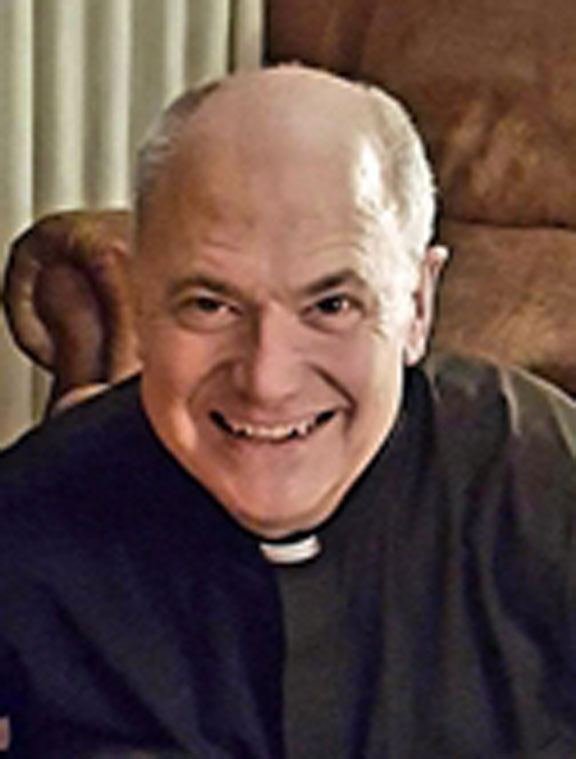 The prophet Isaiah is both concise and profound: “If you remove from your midst oppression, false accusation, and malicious speech; if you bestow your bread on the hungry and satisfy the afflicted; then light shall rise for you in the darkness, and the gloom shall become for you like midday.” These words direct our attention to the sacredness of human life and human dignity. Without mincing any words, Isaiah sees no compromise when it comes to our relationship with the hungry, homeless, naked, and afflicted. Jesus insisted on the centrality of these relationships and directly stated that what you do to one of the least of these you do to him.
The prophet Isaiah is both concise and profound: “If you remove from your midst oppression, false accusation, and malicious speech; if you bestow your bread on the hungry and satisfy the afflicted; then light shall rise for you in the darkness, and the gloom shall become for you like midday.” These words direct our attention to the sacredness of human life and human dignity. Without mincing any words, Isaiah sees no compromise when it comes to our relationship with the hungry, homeless, naked, and afflicted. Jesus insisted on the centrality of these relationships and directly stated that what you do to one of the least of these you do to him.
How much clearer does it need to be? Our faith speaks directly to every aspect of human need. But even today, there are many who believe that faith and social issues need to remain separate and be treated differently. There are many places where the sacredness of human life and human dignity are sacrificed. The unborn child, the immigrant, the young victim of sex trafficking, victims of war and violence, the poor and the homeless, those struggling to make ends meet who cannot find sustainable work, those on death row, victims of sexual and emotional abuse, the forgotten elderly, those who are physically or emotionally challenged, those suffering from addictions, and those who profit from enabling them are just a few examples. For every one of these and more, there are two things that are needed. The first is an immediate compassionate response that helps to ease their burden. The second is an understanding of why each challenge exists and what needs to be done to fix it.
Both are difficult. And both require more than what social services can provide and law can accomplish. The solution requires an acceptance of what our faith directs us to do and then working towards real systemic change. There is a great deal of work to do, and it will require communities of salt and light to accomplish it. Our faith brings us into the marketplace, to the streets, to politicians, to teachers, to leaders, to governments, and to people who really do not care what Jesus has to say or what Christianity directs.
Salt brings taste, zest, and joy to life. We are asked to liven things up by allowing the joy of our faith to spill over into the lives of others. Once we are able to develop a sincere and deep relationship with God, it will define us and flow out of us.
Because of that relationship, humanity can be freshened and set on proper course. This is especially true if these relationships are cultivated, shared, and enriched in communities that share the same beliefs. To be light means that our faith must translate into action so that we can be Christ for others and extend the same arm of mercy and compassion that Christ did. To be light means that through perseverance, learning, determination, and discernment, the darkness of the cause of injustice can be illumined, challenged, and remedied. None of this is easy work.
St. Paul came to the table with weakness and a lot of trembling. He did not have persuasive words of wisdom that swept people off their feet and set them on proper course. His effectiveness came because of his relationship with Jesus Christ, which brought a demonstration of Spirit and power. His relationship with God flowed over into his life and created an example of convincing integrity. It was from this simple example that the early communities flourished and grew. Numbers were added to the faith not because of what people said, but because of how they lived. They prioritized their lives and solved their problems differently than the rest of the secular world. If it happened once, it can happen again.
As with any group poised with tackling a challenge, some members have the gifts to train hard and get right into the heart of what needs to be done. Others have different gifts and talents and may find themselves suited more for a supportive role, lending their voice of encouragement and contributing to the mission as they can. We all come with different means, but we are all on the same team. Our Lord and Master has given us the blueprint and game plan. All we need to do is put it into action! I wonder how the world would look if Christianity was actually tried for a change.
Jesus wouldn’t have gone through all of the trouble of gathering a bunch of people together, teaching them about the kingdom of God, and sending them off on a mission if he didn’t think we had the ability to handle this. A good teacher knows what his students can handle. Do we see in ourselves what God sees in us? We have the ability to be both salt and light. We can do this!
Fr. Mark Suslenko is Pastor of the Community of Ss. Isidore and Maria in Glastonbury, CT. Fr. Suslenko publishes reflection articles regularly to his parish’s blog. To read more of Fr. Suslenko’s reflections, visit https://isidoreandmaria.org/category/pastor-reflections/.
